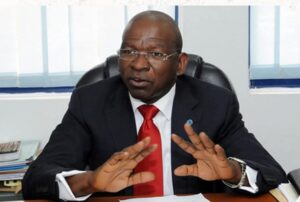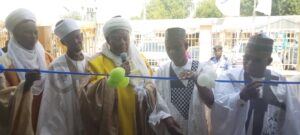UNICEF invests N1.3bn to support healthcare services in Taraba
The Chief of Field Office, UNICEF Nigeria, Bauchi Field Office, Bhanu Pathak, says the organisation has invested N1.3 billion to support Taraba State Government to deliver healthcare services.
Pathaki, who disclosed this in Jalingo, said that the money was spent over a period of four years.
He told Governor Darius Ishaku during a courtesy call that the interventions were mainly in the areas of Maternal, New Born and Child Health; and routine immunisation activities in the 16 local government areas of the state.
“UNICEF partnered with the government through funding provided by the government of Canada through UNICEF to reach women and children in the Hard to Reach settlements, using mobile health teams, and reached over two million women and children during the four-year project which rounded up in December 2018,” he explained.
He however lamented that lack of support for the hard to reach teams had led to loss of investments made over the four-year period through capacity building.
The officer also identified other challenges to include lack of supplies, volunteers to reach children with common childhood illnesses, funding for supervision by the state team and low performance of the Primary Health Care Under One Roof (PHCUOR), which scorecard had remained 58 per cent due to lack of dedicated budget line for PHCs.
Pathak, therefore, urged the state government to recruit more personnel for the PHCs to ensure the sustainability of the Hard to Reach (HTR) mobile outreach team approach, which according to him, has contributed more 20 per cent of the total state’s health coverage.
Responding, Ishaku assured that the state government would continue to partner with UNICEF and other donor agencies to improve the welfare of the citizens, especially women and children.
While appreciating UNICEF for its various intervention programmes in the state, he assured that the government would always be prompt in providing its counterpart funds so as to encourage foreign partners in their various interventions in healthcare as well as in WASH sub-sectors.
L.Nasir












